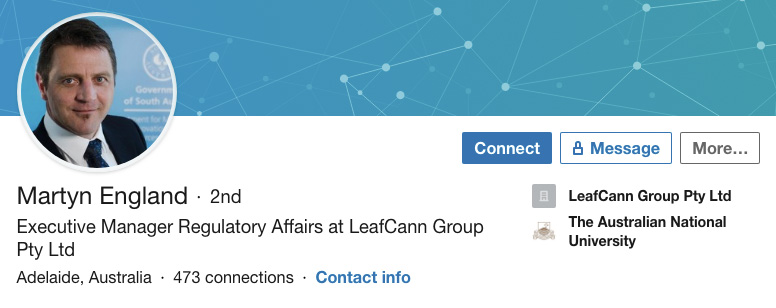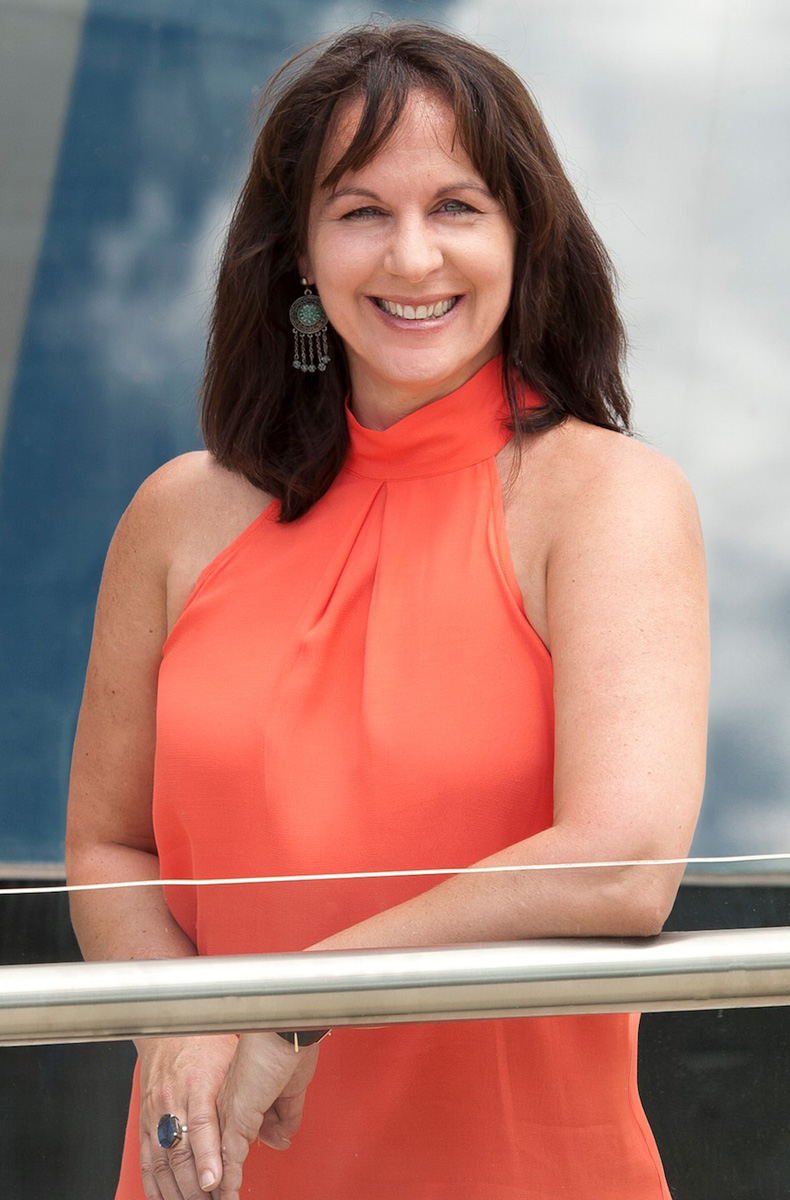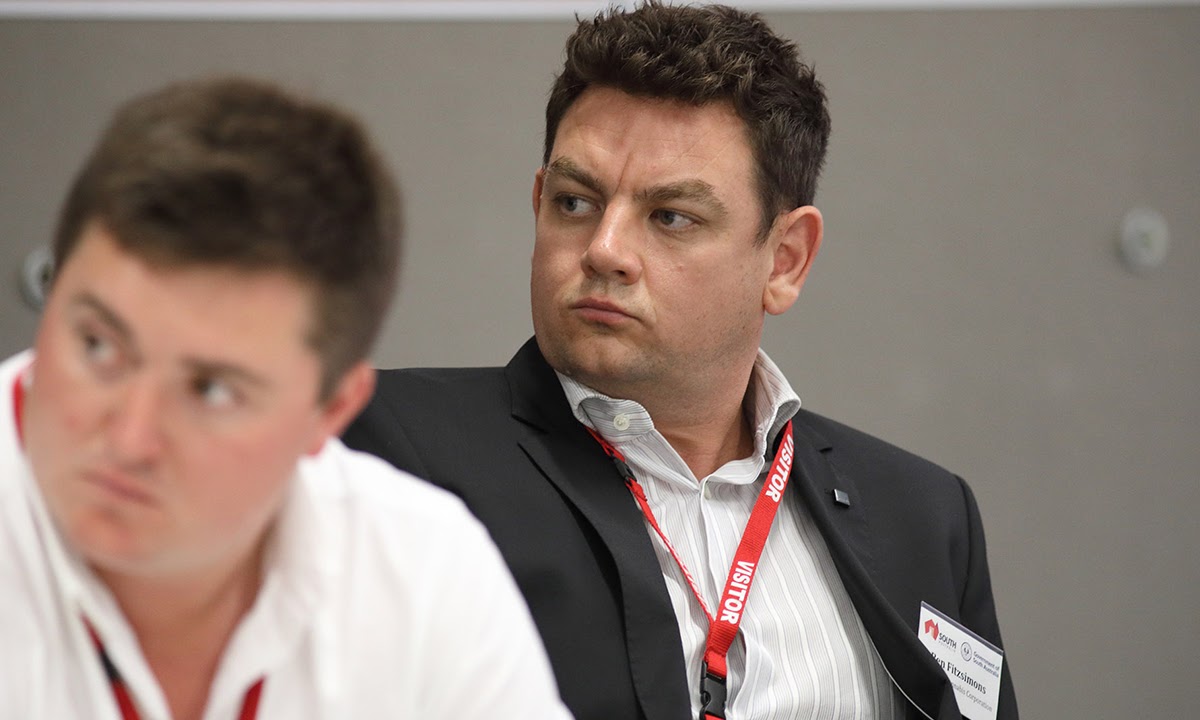Former top bureaucrat “knows our commercial secrets”
EXCLUSIVE | A recently dismissed SA Trade Department executive, now working for a local medicinal cannabis company, had access to secret information on its competitors, one of them has warned.


Martyn England led the Office of Industrial Hemp and Medicinal Cannabis from its inception in April 2017 – among other roles at the Department of Trade, Tourism and Investment – until he was made redundant in July this year.
England was recently appointed executive manager of regulatory affairs for medicinal cannabis company LeafCann, which is setting up operations in South Australia.
The appointment is raising serious concerns in the local industry.
“He has had high-level access to every interested party’s plans in South Australia for a few years, and had access to business plans, and had access to concepts and ideas,” said Ben Fitzsimons, shareholder in SA-based medicinal cannabis company WeCann.
Fitzsimons told InDaily England was in possession of commercial-in-confidence information on many, if not all, current, former and prospective medicinal cannabis companies in South Australia through his former role in the department.
“There will be a number of people watching LeafCann very closely … to ensure that other people’s intellectual property isn’t being used by them,” said Fitzsimons.
“Commercially, it’s concerning that someone has been privy to all plans, hopes and dreams of (hemp and medicinal cannabis) proponents in South Australia has now got that information inside a privately-held company.
“The government needs to ensure that that IP (intellectual property) is protected.”
The Office of Industrial Hemp and Medicinal Cannabis is described on the Department’s website as: “as a single point of contact (that) will work with industry and across government to provide ongoing support and advice, particularly for new ventures in the cultivation and processing of industrial hemp or medicinal cannabis”.
The founder of an Australian hemp clothing company, who declined to be named for this story, told InDaily they had also discussed “sensitive information about our business” with England during his time in the public service.

A screenshot of Martyn England’s LinkedIn page.
A Department spokesperson told InDaily that England had been “employed as director, case management and regions, which had responsibility for the Office for Industrial Hemp and Medicinal Cannabis”.
“The (Office) was formally set up in April 2017 to act as a single point of contact for industry to provide support and advice to companies and new ventures in cultivation and processing of the plant,” the spokesperson said in a statement this morning, adding that England had responsibility for the Office since its inception.
England’s LinkedIn page does not refer to his role at the Office of Industrial Hemp and Medicinal Cannabis, but says he was a director of case management and regions for the Department of Trade, Tourism and Investment between April and June this year.
It also says he has been a director of case management coordination at the Department of State Development, from August 2016 to “present”.
LeafCann CEO Elisabetta Faenza told InDaily yesterday her company would never ask England to divulge competitors’ commercial secrets, nor would he volunteer to do so, because the Public Service Code of Ethics prohibits it.
The Code reads:
Public sector employees who leave the public sector to work with a non-Government employer will avoid situations which would result in an unfair advantage for their new employer.
The Department spokesperson told InDaily: “The Code of Ethics for the South Australian Public Sector outlines the expectations when an employee leaves the sector.”
“At this point in time the Department is not aware of any conflict of interest or breach of Mr England’s contract has occurred.”
Faenza said England was an “amazing get” for her company, but that he was mainly being used to work on a LeafCann project in the United Kingdom, and that she would never ask him to reveal knowledge about other companies that he gained from his time in the public service.
“We certainly would never ask, nor would we be party to any information about anybody else,” she said.
“He’s a professional.
“We were only asking him about what we’re doing.”
Asked for her understanding of England’s former role in the Department, Faenza told InDaily: “He managed a number of different areas for, I think, the Department of Industry and one of those areas was hemp and medicinal cannabis – but it was just a virtual office.”
“I wasn’t an office that was full-time dedicated to hemp and medicinal cannabis.”

LeafCann CEO Elisabetta Faenza. Photo: supplied.
She said LeafCann was “known as a very good actor in our sector” and stressed that she would never ask England to do something that would breach the Code of Ethics, adding that medicinal cannabis remained a very small industry since it was legalised and that it was difficult to find people qualified in its regulation.
Asked how England’s appointment occurred, she said LeafCann first approached England after reading about his redundancy in the media; he then took some time to think about it, and finally accepted.
She said he is “someone who speaks government (and) actually understands” regulatory systems for the newly legalised industry.
“That’s a useful person to have in the team,” said Faenza.
State Ombudsman Wayne Lines declined to comment, other than to explain that in principle, the conduct of any former public servant can be scrutinised if a complaint is made.
LeafCann currently appears to be leading the race to build South Australia’s first, large-scale medicinal cannabis cultivation, research and manufacturing facility.
Faenza’s company plans a “seed-to-sale” medicinal cannabis factory that would eventually employ 1000 people, to be operational by late 2020 or early 2021.
She told InDaily last month that her company had found the South Australian Government very helpful – in comparison to other state governments – especially when it came to facilitating the process of obtaining federal licences required to establish the facility.
“State governments don’t really have any say in helping you get your licence (but) they can work against it,” she said at the time.
“The bureaucrats that we worked with in South Australia were very helpful and able to explain any bureaucratic issue.
“We found the environment to be positive and supportive.”
LeafCann now has all of the required licences, she said.
LeafCann is currently in the pre-clinical phase for the first Australian clinical trial assessing the potential of medicinal cannabis in treating the behavioural and psychological symptoms of dementia.
Fitzsimons, as well as being a WeCann shareholder, is a former director of the Australian Cannabis Corporation, which made a high-profile bid to use the former Holden site to cultivate cannabis and manufacture medicines from it.

Ben Fitzsimons, during his time as director of Australian Cannabis Corporation. Photo: Tony Lewis / InDaily
He and then-collaborator, outspoken financier Shane Yeend suggested the venture would create 2500 jobs and kick-start an $800 million industry.
The proposal failed after a public spat with the Weatherill Government over its slowness to act on legislative change that the pair believed would enable the project.
Fitzsimons told InDaily this week that England had been the “go-to guy” for the Government’s stakeholder engagement on medicinal cannabis industry since the Weatherill Government announced its support for the industry and established the Office of Industrial Hemp and Medicinal Cannabis.
Although the federal government assesses licence applications for cultivating, manufacturing and researching cannabis products, state governments can object to particular applications.
Fitzsimons said England had a role in the process that eventually rejected WeCann’s application for federal licences in early 2017, but “that was two years ago”.
WeCann is now working on establishing relationships overseas.
InDaily has repeatedly approached England by phone for comment, but he has not responded.
We also approached Minister for Trade, Tourism and Investment David Ridgway, but he referred us to his Department.




